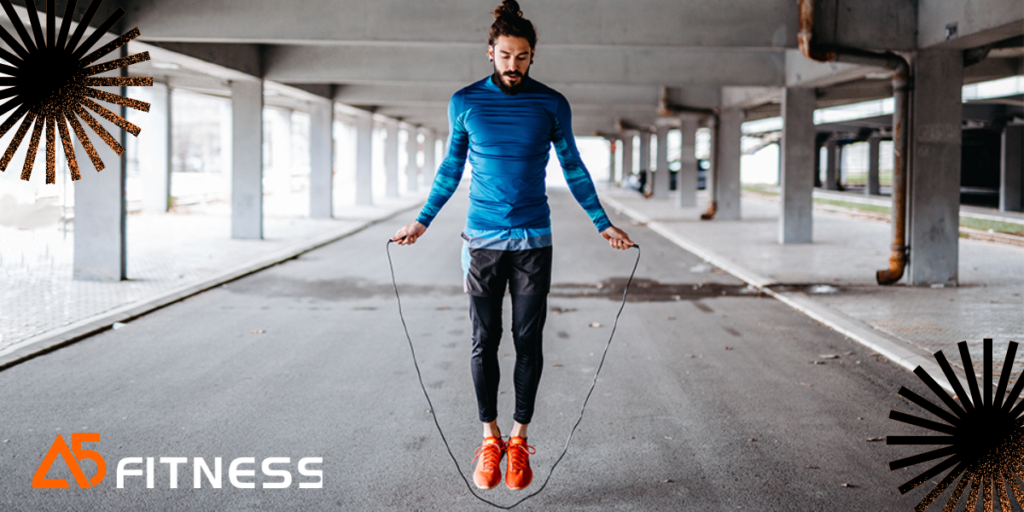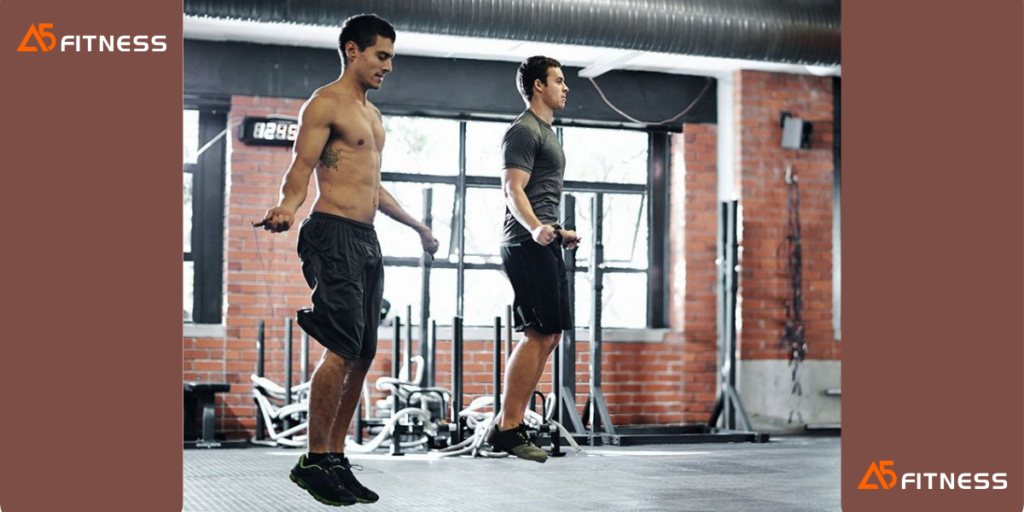Currently Empty: £0.00
Jumping rope is a fantastic exercise that offers numerous benefits for people of all fitness levels. Not only is it an effective way to burn calories and improve cardiovascular health, but it also enhances coordination, agility, and overall fitness.
If you want to lose weight and to stay fit with fun, then jumping rope is among the best options available for a fun doing exercise that helps in staying fit.
In this article, we will explore 10 different types of jumping ropes, their unique features, and help you determine which one is best suited for your fitness goals. So, let’s dive in and find the perfect gym equipment to enhance your workouts!
Jumping Rope Exercise
Jumping rope has long been a popular exercise among athletes, fitness enthusiasts, and even children on the playground. It is a simple yet effective way to engage multiple muscle groups, improve cardiovascular endurance, and burn calories.
The repetitive motion of jumping rope helps strengthen the legs, core, and upper body while also improving balance and coordination.
Choosing the right type of jumping rope is crucial to optimize your workouts and achieve your desired fitness goals. With a wide variety of options available in the market, it’s essential to understand the different types of jumping ropes and their specific benefits.

Types of Jumping Ropes
1. Standard Jump Rope
The standard jump rope is the most common and widely used type. It consists of a simple, lightweight rope with handles on each end. This type of jump rope is suitable for beginners and general fitness enthusiasts. It provides a good cardiovascular workout and helps improve coordination and rhythm.
Points to remember while purchasing Standard Jumping rope
When choosing a standard jump rope, consider the length, material, and handle grip. The length should be appropriate for your height, allowing the rope to pass underneath your feet comfortably.
The material should be durable and lightweight, such as nylon or PVC. Additionally, opt for handles that offer a comfortable grip to prevent slippage during your workouts.
2. Speed Jump Rope
If you’re looking to increase the intensity of your cardio workouts and improve speed, a speed jump rope is an excellent choice. This type of jump rope features a thin, lightweight cable that allows for rapid rotations. The increased speed challenges your coordination and agility while providing an intense cardiovascular workout.
Points to remember while purchasing
When selecting a speed jump rope, consider the cable material and length. Opt for a steel or PVC-coated cable for durability and smooth rotations. The length should be adjustable to accommodate different user heights and preferences.
3. Weighted Jump Rope
For those looking to add resistance and enhance upper body and core strength, a weighted jump rope is an ideal option. This type of jump rope features additional weight in the handles, which increases the workout intensity and engages the muscles further.
Points to remember while purchasing
When choosing a weighted jump rope, consider the weight increments and handle design. Look for adjustable weights that allow you to increase or decrease the resistance as needed. Additionally, opt for handles that provide a comfortable grip and prevent slippage during your workouts.
4. Beaded Jump Rope
Beaded jump ropes are often used for skill development, coordination, and rhythmic exercises. They consist of plastic beads threaded onto a nylon cord, creating a distinct sound and visual effect during rotations. Beaded jump ropes are popular among children and jump rope teams.
Points to remember while purchasing
When selecting a beaded jump rope, consider the bead material and cord length. Choose beads made of durable plastic and a cord length suitable for your height. The beads should be evenly spaced to ensure smooth rotations.
5. Adjustable Jump Rope
An adjustable jump rope offers versatility for users of different heights or those who want to share the rope with others. This type of jump rope features a mechanism that allows you to adjust the length according to your preference.
Points to remember while purchasing
When choosing an adjustable jump rope, ensure that the mechanism is sturdy and easy to use. Look for a rope with a secure locking system to prevent any slipping or readjustments during your workouts.
6. Wire Jump Rope
Wire jump ropes are designed for speed, tricks, and advanced jump rope techniques. They feature a thin wire cable that allows for incredibly fast rotations. Wire jump ropes are commonly used by professional athletes and experienced jump rope enthusiasts.
Points to remember while purchasing
When selecting a wire jump rope, consider the cable material and length. Stainless steel cables are durable and provide smooth rotations. The length should be adjustable to suit your height, allowing the rope to clear your body without any obstructions.
7. Segmented Jump Rope
Segmented jump ropes are often used by beginners, children, and fitness enthusiasts who prefer a slower pace. They consist of plastic segments or beads connected by a nylon cord. The segments or beads add weight to the rope, providing more feedback during rotations.
Points to remember while purchasing
When choosing a segmented jump rope, consider the material of the segments and cord length. Look for durable plastic segments and a cord length suitable for your height. The segments should be securely connected to prevent any breakage during use.
8. Cotton Jumping Rope
Cotton jump ropes are a gentle option, particularly for indoor use or individuals with sensitive skin. They feature a soft cotton rope that provides a comfortable grip and reduces the risk of rope burn.
Points to remember while purchasing
When selecting a cotton jump rope, ensure that the rope is made of high-quality cotton for durability. The length should be appropriate for your height, allowing for comfortable rotations without the rope dragging on the ground.
9. Leather Jumping Rope
Leather jump ropes are known for their durability and suitability for outdoor use. They feature a leather rope that offers a good weight and resistance during workouts. Leather jump ropes are popular among boxers and outdoor fitness enthusiasts.

Points to remember while purchasing
When choosing a leather jump rope, consider the quality of the leather and the length of the rope. Look for genuine leather that is sturdy and can withstand outdoor conditions. The length should be suitable for your height, allowing for smooth rotations without any tangling.
10. Smart Jumping Rope
Smart jump ropes combine the benefits of traditional jump ropes with integrated technology to track your progress and provide a more interactive workout experience.
These jump ropes are equipped with sensors and connect to a mobile app or fitness tracker, allowing you to monitor your jump count, calories burned, and even compete with friends.
Points to remember while purchasing Jumping Rope
When selecting a smart jump rope, consider the technology features and compatibility with your devices. Look for a jump rope that offers accurate tracking and a user-friendly app interface. Additionally, ensure that the rope itself is of good quality and provides a smooth jumping experience.
Which Jumping Rope is Best for You?
Choosing the best jumping rope depends on several factors. It’s not entirely about the price, there are many factors that are individually taken in account to select the most appropriate rope for you. Here are some considerations to help you make the right decision:
- Fitness Goals:
If your primary goal is cardiovascular endurance and overall fitness, a standard jump rope or a speed jump rope would be suitable. For those aiming to build upper body and core strength, a weighted jump rope is an excellent choice. - Skill Level:
Beginners may find standard jump ropes, segmented jump ropes, or beaded jump ropes more comfortable to start with. As you advance and develop better coordination, you can explore options like speed jump ropes, wire jump ropes, or even smart jump ropes. - Workout Environment:
Consider where you plan to use the jump rope. If you prefer indoor workouts or have sensitive skin, cotton jump ropes or leather jump ropes would be appropriate. For outdoor workouts or more intense training, opt for durable options like leather or wire jump ropes. - User Height:
Adjustable jump ropes are versatile options that can accommodate users of different heights. Ensure that the jump rope you choose can be easily adjusted to suit your height or the height of multiple users. - Personal Preference:
Ultimately, choose a jumping rope that you enjoy using. If you find a particular type of jump rope more fun or engaging, you’re more likely to stick with your workouts and achieve better results.
Remember to consider your unique needs and consult with a fitness professional if you have any specific concerns or requirements. The best jumping rope is the one that motivates you to jump, improves your fitness, and keeps you engaged in your workouts.
Conclusion
Jumping rope is a versatile and effective exercise that offers numerous benefits for overall fitness. With a wide variety of jumping rope options available, it’s important to choose the type that aligns with your fitness goals, skill level, and personal preferences.
Whether you’re a beginner looking for a basic workout or an experienced athlete aiming to improve speed and coordination, there is a jumping rope out there that suits your needs. So, grab your gym equipment, find the perfect jumping rope, and start jumping your way to improved fitness and health!
FAQs
- Can jumping rope help with weight loss?
Yes, jumping rope is a fantastic exercise for weight loss. It is a high-intensity, calorie-burning activity that engages multiple muscle groups and boosts cardiovascular endurance.
- How long should I jump rope for each session?
The duration of your jump rope sessions depends on your fitness level and goals. Start with shorter sessions, such as 5–10 minutes, and gradually increase the duration as your endurance improves.
- Can jumping rope help improve coordination?
Yes, jumping rope is an excellent exercise for improving coordination. The rhythmic motion of jumping rope requires synchronization between your hands, feet, and eyes, enhancing your overall coordination and motor skills.

